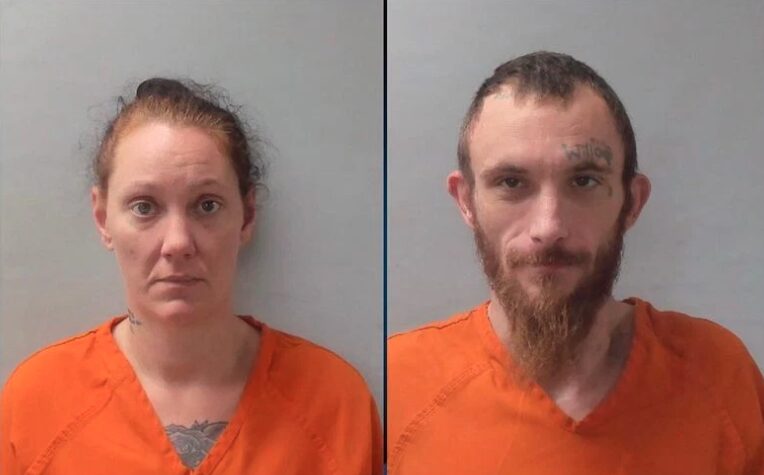
(NEW YORK) — A worldwide selloff jolted markets on Monday in the aftermath of a weaker-than-expected U.S. jobs report that elicited fear of an economic recession.
Japan’s main Nikkei 225 stock index dropped more than 12%, its worst day of trading since 1987. Each of the major U.S. stock indexes plummeted more than 2%.
Nvidia, a chipmaker that had helped catapult market gains so far this year, dropped as much as 14% before recovering some of those losses.
Renewed warnings of an imminent recession arrive after years of doomsday forecasts that stretch back to the staggering rise of inflation three years ago. So far, the U.S. has defied alarm and sustained solid growth, proving many analysts wrong.
Economists who spoke to ABC News disagreed about whether current economic conditions warrant serious concern about a possible recession or foretell resilience of the kind that has followed previous bouts of uncertainty.
Some analysts voiced optimism, pointing to continued economic growth and a tendency for markets to overreact in the face of negative news. Others cautioned of a monthslong labor market cooldown that indicates wider economic weakness and a potential downturn.
“You can see the probability of a recession moving slightly higher, but for me it’s nowhere near the level at which you jump out of the window because the house is burning,” Olu Sonola, the head of U.S. regional economics at Fitch Ratings, told ABC News. “You can still safely take the elevator or the stairs.”
The stock market downswing was set off by a disappointing jobs report on Friday. Employers hired 114,000 workers in July, falling well short of economist expectations of 185,000 jobs. The unemployment rate climbed to 4.3%, the highest level since October 2021.
The unemployment rate has soared this year from 3.7% to 4.3%. That trend has triggered a recession indicator known as the “Sahm Rule,” which says that a rise of 0.5 percentage points in the unemployment rate within a 12-month period typically precedes a recession.
Some economists have doubted whether the trend signals a recession in this case. That’s because the rising unemployment rate owes more to an increase in eligible workers that has expanded the labor pool rather than layoffs that have reduced the number of people with jobs.
The labor market is still growing and the unemployment rate remains at a historically low level.
“I still think we’re in the soft-landing stage,” Stephan Weiler, a professor of economics at Colorado State University and a former Fed research officer, told ABC News, predicting an outcome in which inflation returns to normal and the economy averts a recession.
“Some people expected this recession two years ago or more, and it still hasn’t come about,” Weiler added.
Some economists rebutted that rosy outlook, however. Nancy Lazar, chief global economist at investment firm Piper Sandler, said the uptick in the unemployment rate marks a key piece of evidence indicating a recession will take place before the end of the year.
“It wasn’t just a one-month number,” Lazar said, referring to the jobs report on Friday. “This has been a rising trend.”
The recent labor market cooldown took hold roughly two years after the Federal Reserve began raising interest rates in March 2022 as part of an effort to dial back inflation. On average, Lazar said, the economy dips into a recession two-and-a-half years after the Fed begins a series of rate hikes.
“We’ve been expecting a recession to unfold,” Lazar added, acknowledging that Piper Sandler had previously forecasted a recession as early as the end of 2023. The firm had erred in part because it underestimated the staying power of pandemic-era government stimulus, she said.
“We’re now at the highest risk of the economy moving into a recession,” she added.
On Sunday, Goldman Sachs economists raised the probability of a U.S. recession in the next year from 15% to 25%.
The market downturn has triggered calls for a large interest rate cut at the Fed’s next meeting in September. Some investors have voiced an even more urgent request for a rare emergency rate cut as soon as this week.
In theory, interest rate cuts would ease borrowing fees, unleash consumer demand and business investment and help the economy avert a downturn.
Economists, however, said an interest rate cut likely would not help the economy avoid an imminent recession, since rate changes typically affect the economy only after a period of several months.
Pointing to the market drop-off on Monday, economists said investors have a track record of overreacting to emerging trends in the economy. But, experts added, market swings can help bring about a recession anyway.
“Markets always tend to overreact to the upside and overreact to the downside,” said Sonola, adding that market sentiment may in turn weigh on business investment and economic activity. “It can be a self-reinforcing feedback loop.”
Copyright © 2024, ABC Audio. All rights reserved.




